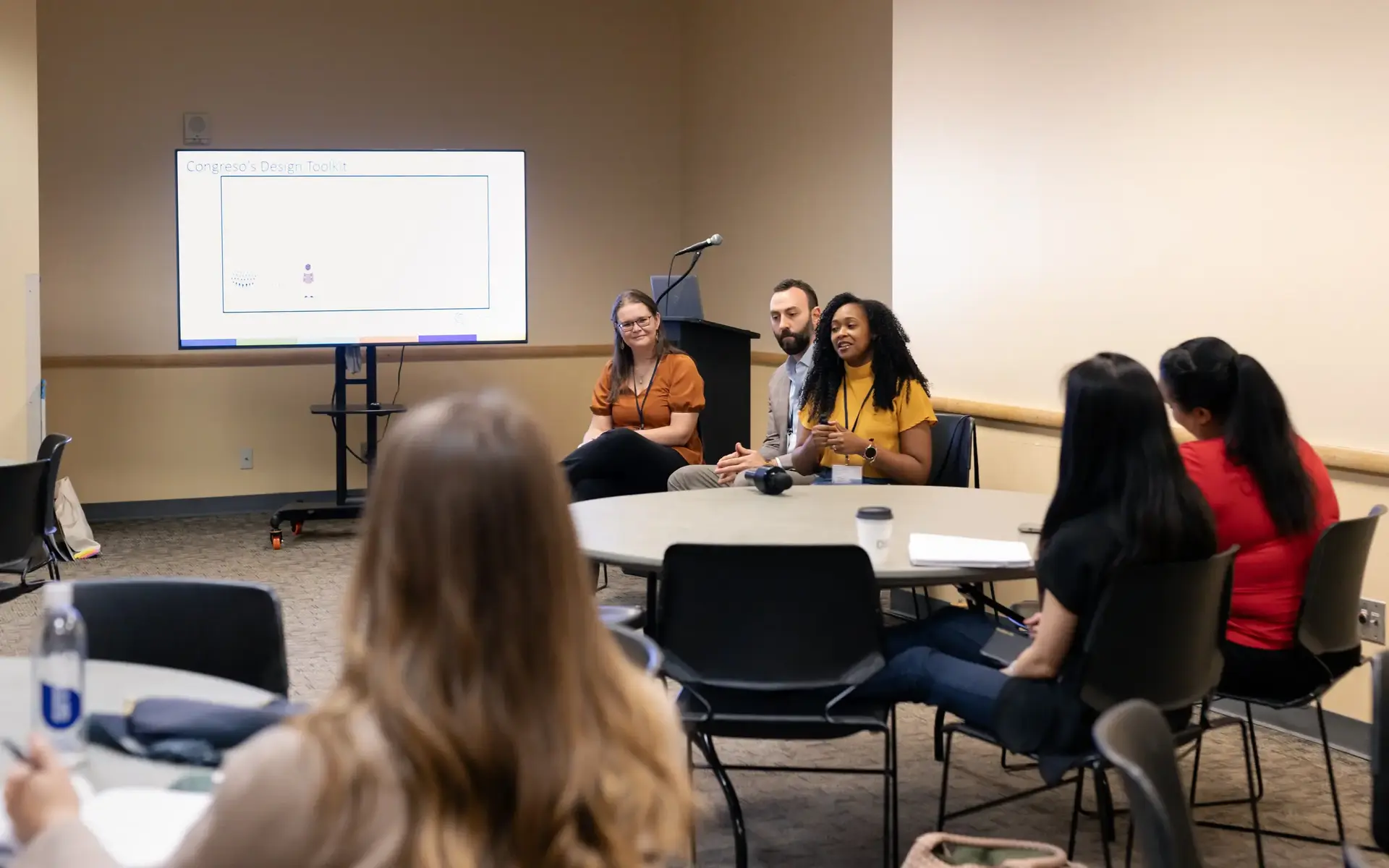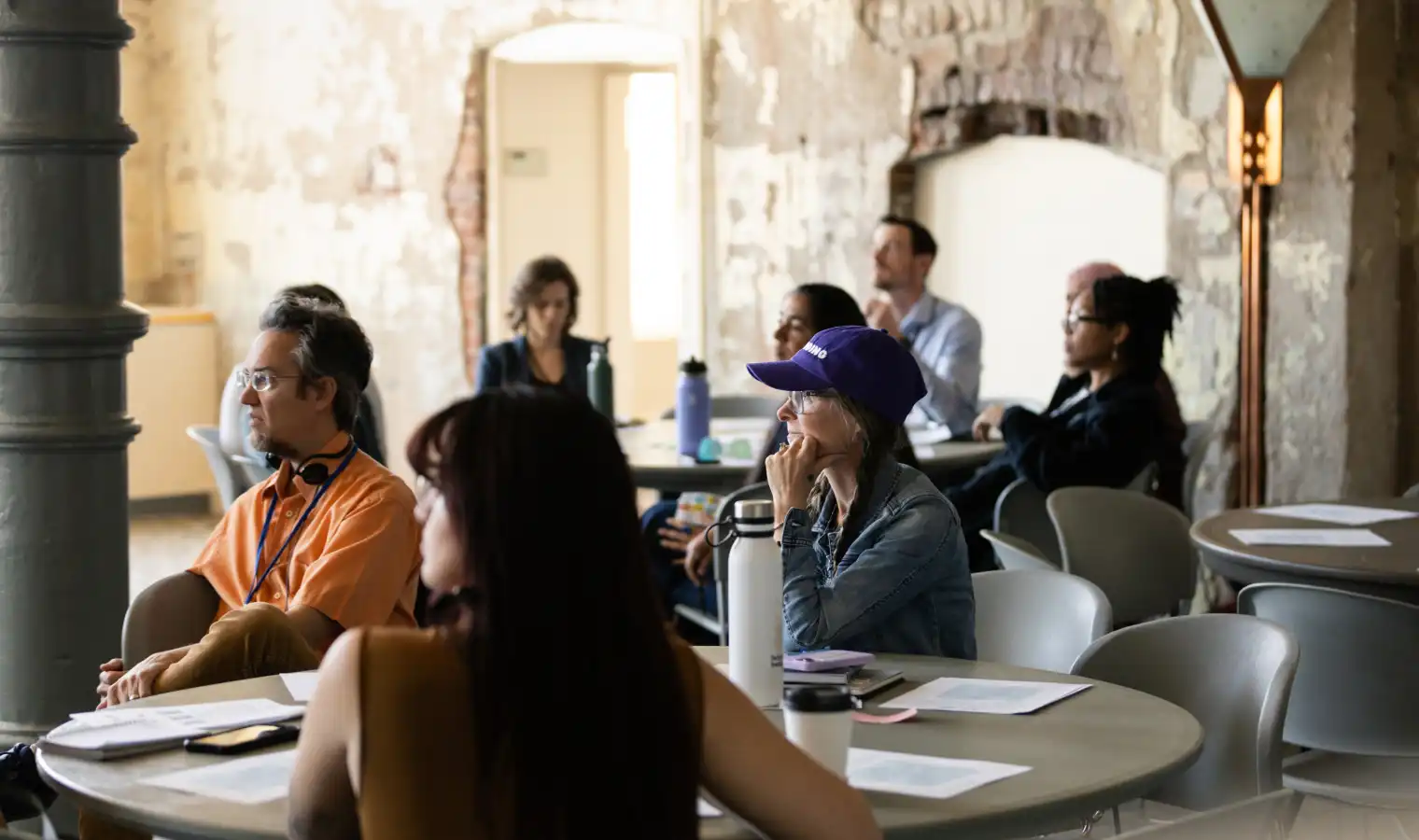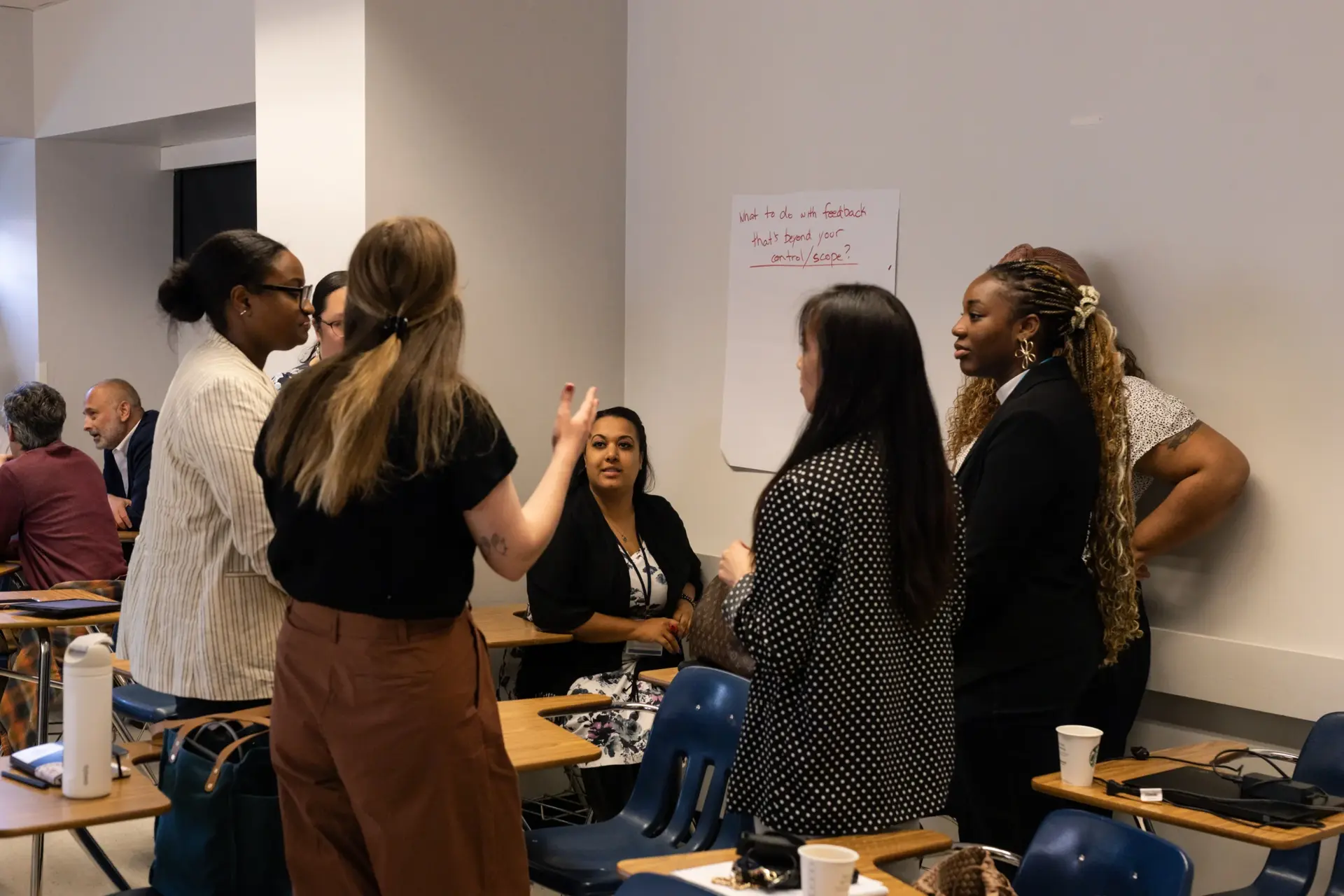- Crowdsource solutions to your feedback challenges at one of our collaborative problem-solving sessions, called LabStorms.
- Learn about the latest trends in high quality feedback at our annual Feedback+ Summit.
- Champion feedback in a year-long feedback fellowship.
- Register for the HERE to Listen conversation deck, which offers practices, examples, and prompts to facilitate reflection, encourage discussion, and define new ways to foster equity.
- Funders: Learn from and with other funders by reading this blog series on funder listening practices or joining the Feedback Incentive Learning Group to participate in monthly learning talks about high-quality, equitable listening practices.
Evidence tells us that high-quality, equitable listening practices lead to more effective and equitable organizational decision-making and improve social outcomes.
Do you want to improve how you listen and respond to the people at the heart of your work? Here are useful resources to support your feedback work.

The idea of feedback is beginning to take root in your organization and there are many exciting opportunities for building high-quality, equitable feedback loops into relationships with constituents and organizational decision-making.
- Strengthen buy-in on your team for feedback by sharing these research projects that link feedback to better client outcomes.
- Learn about the feedback loop in this self-paced Introduction to Feedback Mini Course (coming soon) or this Feedback Fundamentals blog series.
- Identify the right feedback tool for your organization in our Feedback Tools Repository, which features tools like 60 Decibels and Listen4Good.
- Learn about the connection between feedback and equity in Fund for Shared Insight’s Connecting the Dots report.
- Funders: Use the Funder Listening Action Menu and Five Opportunities for Funder Listening to determine how to invest in listening.

You have begun to nurture good feedback practice, but still have room to grow as you build regular, high-quality feedback loops into your relationships with constituents and organizational decision-making.
- Identify ways to improve your feedback practice with this diagnostic Feedback Quiz.
- Design a realistic, closed feedback loop for your organization as part of an in-person or virtual Feedback Crash Course.
- Work with Listen4Good to build systematic feedback loops and use their step-by-step guide for developing feedback practices that center equity.
- Funders: Offer custom feedback trainings to foundation staff and grantees.

You have grown a robust feedback practice. You know that when it’s done well, feedback can help strengthen relationships with your constituents and foster greater, more equitable impact in your work. Continue to grow your feedback knowledge by connecting with other feedback practitioners.